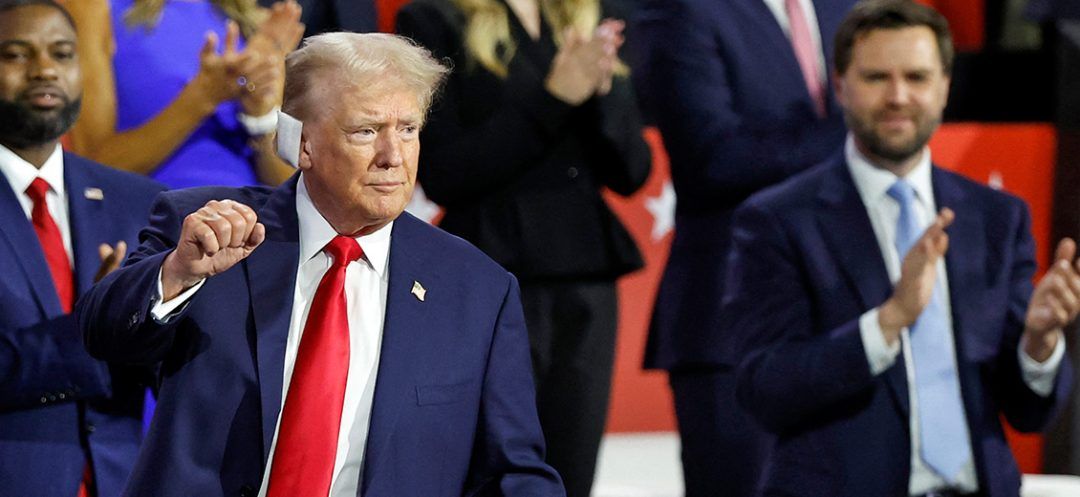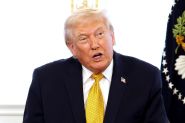- Home
- Middle East
- Assassination Attempt on Trump: A Game-Changer?

The assassination attempt on former President and current presidential candidate Donald Trump was deeply shocking for the American people.
Who would have imagined that one of the most protected figures in the country could be targeted during an electoral rally, despite the extensive presence of the Secret Service and numerous snipers on nearby rooftops?
Yet, with Trump emerging unharmed, the incident poses the question: Would this incident reshape the path to the White House, and, ironically, pave the way for Trump's reelection
This incident is undoubtedly the most significant in American politics in decades. Such events have the potential to redefine the country's political landscape, especially by influencing the outcome of the upcoming presidential elections in November.
This particular presidential campaign is marked by the communication strategy of the Republican candidate, former President Donald Trump. He has built and structured his campaign around the idea that everyone is out to get him – federal prosecutors, judges, election officials, political opponents and even the media. He has forged himself an image of the perpetual victim. Now, he can draw upon a concrete fact: the assassination attempt against him. He can also capitalize on a powerful image: his own, moments after narrowly escaping death, raising his fist in defiance, his lips forming a single word: “Fight!”
Surprisingly, the former president's communication strategy after the assassination attempt has not focused on his usual conspiracy theories with the establishment trying to bring him down, even though Saturday night's incident shows that some would prefer to see him dead rather than re-elected.
Instead, his comments have been dignified, reflecting a statesman-like demeanor aimed at calming his supporters. This marks a stark departure from his previous persona as a controversial and undiplomatic figure. His campaign appears to have recognized the media frenzy surrounding the attempt and sought to present a presidential, democratic and reasonable image—qualities not often associated with him.
Historically, Saturday's incident will likely bolster support for the targeted figure. After Ronald Reagan survived an assassination attempt in 1981, his popularity rating increased by eight points, rallying 92% of Republicans and 51% of Democrats. Such circumstances could sway undecided voters who have thus far remained on the sidelines, toward the Republican camp. Indeed, Trump's resilience and defiant stance could be perceived as a sign of strength and determination, qualities often valued in times of crisis, especially against a current president whose cognitive abilities are being questioned.
Events also appear to have forced hesitant Democrats to backtrack while not obtaining the expected assurances. They will probably support Biden out of obligation in times of crisis, rather than genuine conviction.
However, the situation remains advantageous for Trump's campaign, which benefits from an ideal opponent in Biden, whose gaffes are becoming more numerous by the day. It now seems unlikely that a younger candidate will replace him before November. Thus, numerous polls show that Trump may well reclaim the presidency, while the Democrats, already hanging on to an uncertain victory, see their hopes dwindling.
The Monday Republican National Convention was widely scrutinized and anticipated, marking Donald Trump's first public appearance and speech since the assassination attempt. Aware of the crucial importance of this event, Trump has chosen to maintain the convention at all costs, as it undoubtedly represents his best opportunity to convince a wide range of voters, in a context where each of his moves is meticulously observed. This is especially true as Democrats have opted for a temporary approach to moderate their campaign of hostility against Trump. The former president can afford some partial restraint due to the supposed division of works between him and his supporters, who are much more vehement in the media and on social networks.
The main argument of the Republicans is to say that Joe Biden's campaign, partly responsible for the incident in their opinion, is to present Donald Trump as an autocrat, a fascist who must be stopped at all costs. According to numerous experts, the risk of violence has increased dramatically and the assassination attempt has made an already tense situation even more volatile.
And this is particularly the case with the radicalization of antagonistic political convictions emanating from the two major political poles, Democrats and Republicans. Especially since Donald Trump entered politics, according to many observers who believe that by galvanizing crowds with purely populist arguments, he is likely to incite violence.
Conversely, it could be considered that the continuous demonization of Donald Trump and the Republicans has stirred up racial and violent hatred. However, despite last Saturday's incident and the expected rise in popularity ratings, it would be too simplistic to consider that the failure of Biden's presidency and his political as well as cognitive decline do not make a second Trump presidency ideal. Quite the contrary. Trump is known for his reckless statements, sometimes questioning the legitimacy and importance of his allies and sometimes calling for a disregard of the very foundations of the American Constitution. Thus, no one can deny the willingness to bring down Trump – even if he exaggerates it – quite literally for some!
For example, according to a survey published on June 24 by Robert Pape's team and mentioned in Le Monde, 10% of adults surveyed considered the use of force “justified” to “prevent Donald Trump from becoming president,” which is about 26 million people, a third of whom own firearms. Conversely, 7% of adults supported the use of force to bring Trump back to the White House, representing 18 million people, half of whom own firearms, and 40% consider the January 6, 2021, insurgents as “patriots.” In an op-ed published last Sunday by the Boston Globe, Pape compares this dynamic of violence to the conflicts in Northern Ireland and Bosnia, warning of the risk of seeing a similar situation develop further in the United States.
Thus, the assassination attempt on Donald Trump has deeply marked American politics, leaving an imprint that will likely project onto the presidential elections. The assailant's attempt to eliminate Donald Trump, the 45th President of the United States, paradoxically seems to have handed him his return to the White House on a silver platter.
Read more




Comments